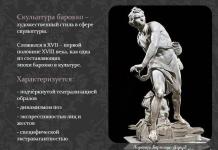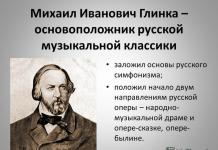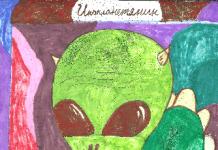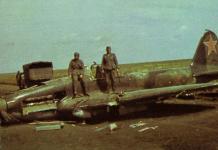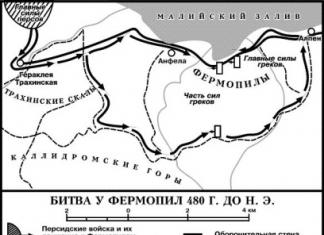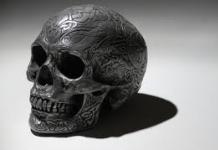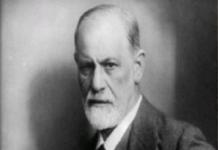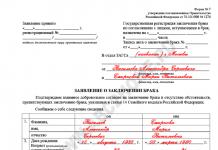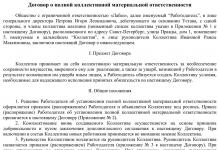In 1962, a student of the journalism department of the philological faculty of the Belarusian State University bought a new book - a voluminous volume by Vlas Doroshevich “Stories and Essays”, published by the publishing house “Moskovsky Rabochiy” with a circulation of one hundred thousand. Thus began my lifelong romance with the “king of feuilletonists.” Nothing I had read before - and I had been an avid book reader since early childhood - had delivered such acute aesthetic pleasure.
“The performance of Mephistopheles began at half past eight.
At half past seven Arrigo Boito undressed and went to bed.
Don’t let anyone in except those sent from the theater.”
This is how the essay “Chaliapin in Mephistopheles” begins, from the first lines immersing the reader in the excited atmosphere of the Milan premiere of Arrigo Boito’s previously unfairly rejected opera, which recreated Goethe’s truly “Faust” as opposed to Gounod’s “candied, sweet and sour” “Faust”. Together with the author, the reader experiences the triumph of the composer, who defeated the all-powerful claque with the help of the brilliant Russian singer.
Temperamental cascade style. Precise, imaginative short line. Great wit. The feeling of supreme skill was almost physically tangible.
I wanted to know more about this extraordinary writer. Today the Internet responds with hundreds of references to his name; a modern newspaper calls him “the father of Russian columnism and feuilletonism.” And in the early 1960s, the scanty afterword in the same one-volume volume provided a minimum of specific biographical information, but was filled with characteristic ideological conclusions designed to “justify” the publication of the “forgotten” writer during the Khrushchev Thaw. It was argued that although Doroshevich “was never a revolutionary and was even afraid of revolution<…>objectively, his essays and feuilletons helped the revolution, exposing the foundations of bourgeois-capitalist society.”
But did the Minsk student then have a real opportunity to “unearth” the real Doroshevich? Decades later, it seems that the decisive turns in my biography were not accidental. In my fourth year at university, in 1964, I was drafted into the army and, after a year of service near Krasnoyarsk, I was transferred to Moscow, where the authorities needed my journalistic abilities. My regime, if we bear in mind the position of a conscript soldier, was quite free. In addition, permission was given - a great rarity for the army orders of those times! - continue your studies by correspondence. Of course, I chose the work of Vlas Doroshevich as the topic of my thesis. And the true rush through Moscow began. Lenin and Historical libraries, archives... From the Lenin Manuscripts Department I flew to the Central State Archive of Literature and Art on Leningradsky Prospekt, from there to the newspaper room of the Historical Library in Starosadsky Lane...
The most interesting acquaintances were made. I became a frequent guest at Gilyarovsky’s apartment on Stoleshnikov Lane, where I had long conversations with the son-in-law of the famous Moscow reporter and friend Vlas Doroshevich, art critic Viktor Mikhailovich Lobanov. I visited on Tverskaya (then Gorky Street) the venerable author of books about Pushkin and the Decembrists, and before the revolution an employee of the Rech newspaper, Arnold Ilyich Gessen. On the same Tverskaya, in the apartment of I. D. Sytin, his daughter and son, Anna Ivanovna and Dmitry Ivanovich, custodians of their father’s archival heritage, allowed the first agreement concluded between the publisher and the feuilletonist to be copied in 1901. In the Manuscripts Department of the Lenin Library, I was given valuable bibliographic advice by the most educated and delicate person, an expert on the work of Korolenko, Alexander Veniaminovich Khrabrovitsky. And - the greatest luck! - I also found Korney Ivanovich Chukovsky, who knew Doroshevich and worked with him in the same newspaper, alive.
In 1965, the magazine “Moscow” published an essay about Doroshevich by Vladimir Pokrovsky, from which it was clear that the author not only was personally acquainted with the famous journalist, but also had materials from his personal archive, which, as I had managed to make sure by that time, had not survived in due completeness. The Moscow editorial office gave me an address, and I hurried to Plyushchikha, where I discovered an old, very dilapidated one-story building, something like a mansion, in a dark corridor of which doors led to several apartments. The man who opened it to me seemed like a very old man, although Vladimir Konstantinovich Pokrovsky was 64 years old (he was born in 1901). Probably, this impression was contributed not only by the forty-year difference in age, but, above all, by the characteristic features of his appearance, which I would like to designate as aristocratic degeneration. Tall, thin, somewhat awkward, with a protruding lower jaw on a wrinkled face, which gave him an arrogant expression, sloppily dressed.
In a communal apartment, his family occupied one room, littered, dirty, and not renovated for a long time. Poverty looked from all corners...
I visited Pokrovsky three or four more times, then we sometimes saw each other in the Lenin Library. From these meetings and conversations, this is what emerged about my new acquaintance. Vladimir Konstantinovich was the son of a famous astronomer, it seems, a native of Perm, he studied at the gymnasium, but apparently did not finish the course. He spoke somewhat reluctantly and vaguely about his life during the revolution, the civil war and subsequent decades. The emphasis was constantly on one word - lecturer. It turned out that almost from his youth, Vladimir Konstantinovich was a born lecturer and educator. At the same time, he emphasized, not without pleasure, that he had never worked for the Soviet government for a day, that is, he had not served on the staff of any organizations, and now, because of this, he has a meager old-age pension.
Yes, lecturing in the 1920s and subsequent times (but not later than the second half of the 30s, when everything became tougher) was a way of survival for various intellectuals and semi-intellectuals, “noble rabble,” a non-class tumbleweed who sought to adapt to the role of educators of illiterate people and thus coexist with the new government, being included in the assets of its various cultural and educational departments and subdepartments. But how Vladimir Konstantinovich lived before the war and in the 40s - nothing was learned about this at all. By the time we met, Pokrovsky called himself a biobibliographer, collaborated with various reference publications, editorial offices that produced calendars, supplied newspapers and magazines with notes and anecdotes for the columns “Interesting to know”, “Interesting trifles”... Publication of a lengthy essay about Doroshevich that took up eight magazine pages in “Moscow” - it was a success for him, rare both in terms of the volume of material and the solidity of the periodical. More often, his small publications found shelter on the last pages of the magazines “Family and School”, “Soviet Variety and Circus”, and mainly in numerous provincial publications.
One day he revealed to me the technology of his activities. He led me to a long rack of unplaned boards, took down some folder (and there were dozens of them piled up there), opened it and asked if such and such an editor worked in the children's editorial office of the Belarusian Radio. While still a student, I began collaborating at the Belarusian Radio and knew many of its workers. But what could be the connection between a Moscow bibliographer, rummaging through the dusty files of old newspapers, pulling out interesting “facts” from there, and radio broadcasting for the Belarusian pioneers?
Doroshevich Vlas Mikhailovich (January 5, 1865, Moscow, Russian Empire - February 22, 1922, Petrograd, RSFSR) - Russian journalist, publicist, theater critic, one of the most prominent feuilletonists of the late 19th - early 20th centuries.
He studied at several Moscow gymnasiums, from which he was repeatedly expelled; I completed my high school course as an external student.
Everything can be returned. Lost wealth, even from lost health, you can get back even a grain. Only time, time alone cannot be returned, not even a moment. Every moment we are closer to death. And catch and fill each of them, because it will not happen again. You asked: how should we live? May every moment be joyful for you. Try to make it a pleasure for others. And if you don’t cause anyone suffering at the same time, consider yourself completely happy. Don't lose your life! Life is a garden. Plant it with flowers so that in old age there will be a place to walk with memories.
Doroshevich Vlas Mikhailovich
He began working in newspapers while still a student at a Moscow gymnasium. He was a reporter for Moskovsky Leaflet and Petersburg Newspaper, and wrote humorous articles in Alarm Clock. His fame began when he worked in Odessa newspapers in the 1890s. Doroshevich attracted attention with witty, biting feuilletons on local topics. The external feature of his articles was the “short line”. He introduced into the pre-revolutionary press the style of a short, aphoristic phrase without additional sentences. While attacking the provincial authorities, Doroshevich never rose above moderate liberalism; in politics he was always a philistine. The biting phrase gave him a reputation as a bold exposer of provincial morals; the authorities looked at him as a dangerous publicist.
In 1897 Doroshevich undertook a trip to the East. Sketches of Sakhalin for the first time revealed to the reader a picture of hard labor prisons on this island. But Doroshevich’s observations were superficial, and the book, which was sensational at the time of its appearance (1st edition, Moscow, 1903; 3rd edition, Moscow, 1905), was soon forgotten. In 1899, Doroshevich, together with Amfitheatrov and Sazonov, undertook the publication of a large political newspaper, Rossiya, in St. Petersburg. Despite its outward noisiness, the newspaper combined unprincipled liberalism with nationalism and chauvinism.
Doroshevich's harsh feuilletons against individual ministers were not so much radical in essence as defiantly impudent. But already at this time Doroshevich’s weak side as a feuilletonist was evident: his verbosity. Some strong and apt lines were lost among the mass of empty phrases. Sometimes his feuilletons rose to the level of a pamphlet in terms of their denunciatory power. Most of it was witty chatter.
Doroshevich had many admirers among the bourgeois reading public and many followers among provincial feuilletonists. In the absence of wit and literary brilliance, the “short line” turned into unbearable chatter and opened the way to the newspaper for mediocre and illiterate people, who covered up their inability to speak with short lines. During this period, Doroshevich made a lot of noise with his campaign in the case of the Skitsky brothers, who were wrongly convicted by the Poltava court. By exposing the judicial practices of that time, Doroshevich achieved a review of the case and acquittal of the Skitskys.
In 1902, “Russia” was closed for Amfitheatrov’s feuilleton “The Deception Lords”. Doroshevich went to work for Sytin’s Moscow newspaper “Russkoye Slovo”, the editor of which he remained until the closure of this newspaper in 1918. Under Doroshevich, “Russkoye Slovo” received enormous distribution, and Doroshevich became the favorite feuilletonist of the Moscow merchants and philistines.
From his travels in the East, Doroshevich brought back an abundant supply of traditions, legends and fairy tales and filled the basement of the “Russian Word” with them. The radical phrase gradually faded away. Accurate, strong phrases are less common among the boundless sea of aphoristic vulgar chatter.
Since my youth I loved to read Vlas Mikhailovich Doroshevich (04/17/1864 Moscow - 02/22/1922 Petrograd), especially on the road and on the beach. His pen seemed to me like a diamond, from God. Did heredity have an effect? He is the son of the writer Alexandra Ivanovna Sokolova and the master of the Moscow printing house S. Sokolov. At the age of six months, he was abandoned by his mother, who fled abroad to escape arrest for political reasons. Vlas was adopted by the college secretary Mikhail Ivanovich Doroshevich. After 10 years, Sokolova achieved the return of her son.
Doctor of Historical Sciences Alexander Georgievich Mendeleev in the book “Life of the newspaper “Russian Word”: Publisher. Employees" (Moscow: ROSSPEN, 2001. – 208 pp.) spoke about the first years of the life of Vlas Doroshevich (quoted from the material “The King of Feuilletons Vlas Doroshevich”, prepared by Alexander Aleshkin in the “Parliamentary Newspaper” on February 1, 2002 No. 24 /903/ http://www.pnp.ru/archive/09033015.html):
“Vlas Mikhailovich Doroshevich was a bright and very original journalist and writer. Newspapers and magazines doubled their circulation when this “king of feuilletons,” the narrator of fairy tales and legends, the author of court reports, theater notes, school essays, and foreign impressions, spoke there. Even Chekhov and Gorky were amazed at his popularity...
And the beginning of his life did not foreshadow triumph. I don’t know how exactly Smolny Institute graduate Alexandra Ivanovna Sokolova “didn’t get along” with the authorities, but after leaving her husband with a six-month-old child, she was forced to move to Belarus. The police were watching the woman, and one day she disappeared, leaving a boy and a note in French in the cold apartment: “The child has not yet been baptized, please give him the name Vlas, in honor of Blaise Pascal.”
Collegiate secretary Mikhail Ivanovich Doroshevich was invited as a witness. He had no children, although his wife prayed about it in all churches. The Doroshevichs adopted the child. The family lived together amicably, the boy was baptized and named Vlas. But Alexandra Sokolova returned from abroad and began looking for her son. Found it. The Doroshevichs did not want to part with the boy, and a lawsuit began. Sokolova tracked the child down for a walk, took her with her, and Doroshevich came with a bailiff. And this went on for ten years. Only when the Doroshevich couple had their own daughter did they “give up” the boy to his mother...
Vlas knew French and English, had good manners, but his mother was not happy: they constantly quarreled, he ran away from home. Apparently, the costs of many years of litigation took their toll. At the age of 14, he already worked as a loader at the Odessa pier, and at 18, he became a student at Moscow University.
Alexandra Sokolova wrote and published. These were novels with sequels (five hundred lines every week in the Moscow List), witty theater reviews; Things were going well for her. Vlas began publishing “reverse reviews” in the same “Moscow List”, disputing her opinion and signing “Your son Vlas”, “Son of his mother”. The audience was delighted."
Vlas studied in several Moscow gymnasiums, from which he was repeatedly expelled; I completed my high school course as an external student. He began living independently at the age of 16. He worked as a digger, loader, proofreader, actor, and gave private lessons. He led a bohemian lifestyle. Then he compiled collections of everyday stories and essays “Moscow Dragonfly”, “Rattle”, etc. (under the pseudonym Merry Moskvich). In 1884, in the Moscow magazine “Volna” (No. 8), he published the first story from theatrical life, “I took revenge,” signed by Uncle Vlas.
Since the mid-1880s. Doroshevich is a regular contributor to the magazines “Alarm Clock”, “Entertainment”, etc., the author of “sketch”, stories “from nature”, feuilleton reviews (“Pictures of Public Life”). During these years I met A.P. Chekhov. In 1889-1892 he worked in the Moscow newspapers “News of the Day” and “Moskovsky Listok”, where he led the columns “Spreads of the Day” and “For the Day”; edited the newspaper “Nizhegorodskaya Pochta” (branch of “Moskovsky List”); spoke with literary critical articles, polemicizing with the critic V.P. Burenin from the newspaper “Novoe Vremya”.
In Moscow he became famous for his feuilletons and theater reviews, which were distinguished by their wit, aphorism, succinct simple sentences, and “short lines.” His feuilletons were published in separate editions: “Papillotki” (Moscow, 1893); “Odessa, Odessans and Odessans” (Odessa, 1895).
In 1897 Doroshevich undertook a trip to the East. Sketches of Sakhalin for the first time revealed to the reader a picture of hard labor prisons on this island. The book “Sakhalin” (1903) made a strong impression then, and I still remember how I read it without stopping in the Bykovsky sanatorium in 1985, when I was expelled from the ranks of the CPSU.
In 1899, Doroshevich, together with Amfitheatrov and Sazonov, undertook the publication of a large political newspaper, Rossiya, in St. Petersburg. Despite its outward noisiness, the newspaper combined liberalism with nationalism. In 1902, “Russia” was closed for Amfitheatrov’s feuilleton “The Deception Lords”.
After another trip to Asia (China, India, Japan) and the Middle East, he, at the invitation of I.D. Sytina headed the Moscow newspaper “Russian Word”; reformed it according to the type of Western European periodicals and turned it into one of the most popular publications in Russia. The “Russian Word” gained enormous popularity, and Doroshevich became the favorite feuilletonist of the Moscow merchants and philistines. Great worldly experience, knowledge of the merchant environment, and preserved powers of observation had an effect. Doroshevich's feuilletons flared up with their former wit and forced people to talk about themselves. From his travels in the East, Doroshevich brought back an abundant supply of traditions, legends and fairy tales and filled the basement of the “Russian Word” with them. New books “Legends and Tales of the East” (Moscow, 1902), “East and War” (Moscow, 1905), etc. were published.
Vlas Doroshevich, notes Alexander Mendeleev, was a loud, successful, lively reporter. He loved comfort, once in Nizhny Novgorod, at a fair, he lived not in a hotel, but in a cozy private apartment with sofas and armchairs - with a widow merchant. It so happened that he fell ill with severe pneumonia, he lay in bed, the widow looked after him, called the doctor, and took the convalescent man to a cliff to bask in the sun. The hour of parting has come. “And you marry me! And I will be a noblewoman!” Doroshevich is 15 years younger, poor and has absolutely nothing to do in Nizhny Novgorod. They played a wedding, and he immediately left for Moscow. I sent her quarters and fifty dollars. When he seriously fell in love and wanted to get married for real, the merchant’s wife said: “I will not give a divorce, what God has united, people will not dissolve, I will go to a monastery, pay a fee for me.” She traveled to monasteries, and everywhere Doroshevich paid his dues... Meanwhile, her beloved woman left for Belgium with her adored son Misha. So the dreams of home and family were destroyed forever, although Doroshevich was married more than once, but he never found happiness in family life...
But he found friends, among them the legendary “Uncle Gilyai.” The granddaughter of Vladimir Alekseevich Gilyarovsky - Ekaterina Georgievna Kiseleva - in the book “Stories about Uncle Gilyai” (Moscow: Young Guard, 1963. - 253 pages) spoke about the warm relationship between her grandfather and Vlas Doroshevich (http://www.booksite.ru/ fulltext/ras/ska/zyo/dya/deg/uil/yae/11.htm):
“Here, in the former dining room, under glass, in a simple black frame, was kept the address that Gilyarovsky received from “Russian Word” on the anniversary days. In printed font it was typed on a sheet of beautiful paper: “...Dear Vladimir Alekseevich! The most correct and best thing would be to write to you impromptu instead of an address. For a man who was a worker impromptu, became an artist impromptu, was a hero on the battlefield impromptu, became a writer impromptu and - what is most surprising of all - creates his own impromptu impromptu - this form of greeting would be the most appropriate. But we are not Gilyarovsky, we are only Gilyarovsky’s comrades.
As comrades, we will not evaluate your merits in detail, we will only say that you know how to live on Parnassus, from where you bring your heartfelt poems and stories, and on earth, where, thanks to the pen of the “King of Reporters,” many dark stories have been revealed, a lot of good has been done.
But your best classic work is your personality. That Gilyarovsky, whose broad soul cannot be ridden on a horse. This is a wonderful, open book, full of power, beauty and affection..."
It’s impossible to read further, there’s too much praise,” Uncle Gilyai said to those who were paying attention to this address. Below it were signatures: wide, sweeping - Vlas Doroshevich, and then - Fyodor Blagov, the actual editor of the Russian Word, Sergei Rokshanin, Sergei Yablonovsky-Potresov, Sergei Mamontov - the son of Savva Mamontov... and at the end modestly: Ivan Sytin. ..
The address was written by Vlas Mikhailovich Doroshevich, you could feel it in the style. And Yablonovsky put his hand in: “You can’t outrun the kindness of Uncle Gilay on a horse” - this is his phrase.
Vlas Doroshevich means years of life, work, letters and notes, telegrams, and finally, frequent meetings. Is it any wonder that I wanted to have his portrait before my eyes? Doroshevich himself brought the portrait to Stoleshniki. Young, not yet fat, wearing an elegant hat.
Uncle Gilyai was older than Doroshevich and worked as a journalist when Vlas Mikhailovich just started. But time passed, and Russia began to read Doroshevich’s feuilletons, his famous short line. This line caused a lot of ridicule in the newspaper environment. And Uncle Gilyai sometimes called Doroshevich: “Word - dot - dot - line.” However, when opening the “Russian Word”, he always looked for short lines, and having found it, he calmed down - there would be something to read.
They collaborated together back in the St. Petersburg newspaper Rossiya, but real friendship began from the moment Doroshevich moved to Moscow to work at Russky Slovo. The newspaper's editorial office was located not far from Stoleshnikov, on Tverskaya, and it was rare that Vlas Mikhailovich did not drop by to have lunch or dinner with Uncle Gily. They lived and worked without competition, enjoying communication, accompanying their meetings with a joke and, if it turned out to be not entirely harmless, they were not afraid - nothing violated their mutual respect and friendly disposition towards each other. For those around him, it was apparently a pleasure to watch when Doroshevich and Gilyarovsky got together: sparks flew from their wit.
Wherever Doroshevich was, he sent news about himself to Stoleshniki. His short lines came from Spain and France, and always with a joke. Just a few phrases, but they definitely brought a smile.
In Moscow, where they saw each other almost every day, Uncle Gilyay only had time to take envelopes from the mailbox, the address on which was written in Doroshevich’s wide, sweeping handwriting. Sometimes these were letters in which Vlas Mikhailovich talked about life’s clouds, about the joys and worries of the young father, but most often they were jokes. Doroshevich sometimes read his feuilletons aloud to Uncle Gilyai, before they were published, and sometimes after, those that Vlas Mikhailovich himself liked, for example, about Chaliapin, about his success in Italy, in Milan... - really, brilliantly written.
Doroshevich's relationship with his mother, writer Alexandra Ivanovna Sokolova, remained somewhat complicated. Uncle Gilyai knew Sokolova for a very long time, when she still lived in Moscow and worked at Moskovsky List. In addition to Vlas Mikhailovich, Sokolova also had a daughter and youngest son, Trifon, a man involved in literature, but with an unstable nervous system and morbidly proud. Sokolova lived in St. Petersburg, and Trifon, not wanting to complicate her life, left for Moscow. He did not communicate with Vlas Mikhailovich. He settled down somewhere and lived alone, not letting anyone know about himself, as if he had cut himself off from the world. But, being a sick man, he needed help. The mother suffered from Tryphon’s instability and was worried about him. She turned to Uncle Gilyai with a request to find Tryphon in Moscow and help him.
It turned out that he lived in one of the Moscow basements. Uncle Gilyai helped him with his work. Trifon began submitting reports to small newspapers, and when he was unable to do this due to a developing illness, Uncle Gilyai simply supplied him with everything he needed from time to time - food, clothing. Sokolova also passed on her help to her son through Uncle Gilay - Trifon did not want to accept anything from anyone else. It so happened that his mother, having fallen, became seriously ill and was deprived of the opportunity to work for a year and a half. What a desperate letter she sent in those days to Stoleshniki: “...Only here, in Holy Rus', can you work tirelessly for forty years and earn yourself the right to die of hunger! This is our national advantage!..”
All the time while she was ill, Uncle Gilyai did not leave Trifon with his worries and never said a word about him and Sokolova to Doroshevich.
But Vlas Mikhailovich knew a lot, you could feel it, although he also never spoke about his mother and brother. And on his book “Sakhalin” he wrote to Uncle Gilya: “To the old comrade, the best of friends and almost the only friend, Volodya Gilyarovsky, in fond memory of January 12, 1903.”
During the Revolution of 1905-1907, Doroshevich, the recognized “king of feuilletons,” created the most radical critical works (“Truly Russian Emelyan”, “Deputy of the Third Duma”, etc.), satirical stories “Whirlwind”, “Premier. Tomorrow's reality (Fantasy)." The external feature of his articles was a “short line” - without additional sentences, aphoristic phrases. He earned a reputation as a bold exposer of provincial morals; the authorities looked at him as a dangerous publicist. Doroshevich's harsh feuilletons against individual ministers were not so much radical in essence as defiantly impudent. Sometimes his feuilletons rose to the level of a pamphlet in terms of their denunciation, however, as critics note, “for the most part it was witty chatter.”
Doroshevich had many admirers among the bourgeois reading public and many followers among provincial feuilletonists. In the absence of wit and literary brilliance, the “short line” turned into unbearable chatter and opened the way to the newspaper for mediocre and illiterate people, who covered up their inability to speak with short lines. During this period, Doroshevich made a lot of noise with his campaign in the case of the Skitsky brothers, who were wrongly convicted by the Poltava court. By exposing the judicial practices of that time, Doroshevich achieved a review of the case and acquittal of the Skitskys.
Like “Russian Word”, Doroshevich had a right-wing Cadet appearance, but did not interfere in the struggle of parties. He became famous and rich, very influential, he could travel anywhere, buy books, paintings, collect collections. And during the revolution, like the publisher Sytin, he remained naked...
In 1917, Doroshevich published a feuilleton against Kerensky, who was a member of the Provisional Government. He usually stood up for freedom of speech and press, but here - Doroshevich was sent to prison! To one of the casemates of the Peter and Paul Fortress, where the tsar’s ministers were already sitting. Vlas was warned about this, and he left first for Essentuki, and then to the south - Kyiv, Kharkov, Odessa, Crimea, and there - the Civil War, it was impossible to get to Moscow or Petrograd. Going abroad? This is how his daughter Natalya Vlasovna wrote: “During our short meeting, my father firmly told me that he would not leave Russia anywhere. A Russian writer has value as long as his feet stand on Russian soil.”
This was his essence, his strong conviction. He did not want to write in the White Guard press. I gave lectures. During one, he became ill: paralysis occurred and one side was lost. They transported him to Sevastopol, and managed to leave his apartment, which had been guarded by a cook for a quarter of a century. After his illness, Doroshevich performed brilliantly at the trial, where the Wrangelites accused the former correspondent of the Russian Word, Pyotr Nilus, of Bolshevism. The judges were forced to acquit the defendant. Meanwhile, the Reds came to Crimea. One of the residents of Doroshevich’s apartment, Leonid Vitalievich Sobinov, became the head of the arts department of the Sevastopol department of public education. The great Sobinov performed everywhere - he sang, and Doroshevich was his lecturer. This is how they earned themselves rations and cigarettes.
Peter Nilus, who was a member of the Bolshevik Party and held high positions after the revolution, asked the central authorities to help Doroshevich. Lunacharsky gave the order - a carriage for Doroshevich! Through negotiations, it was possible to change the carriage for a place on the ambulance train, and Doroshevich left for St. Petersburg. After some time, the daughter also went in search of her father.
She came to Sytin in Moscow. Yes, he came... We gave her coffee and bought her a train ticket. But he was not at home in St. Petersburg either. The daughter went to Vasily Nemirovich-Danchenko: again coffee, three days of respite and no news about her father. Finally I met Sergei Fedorovich Oldenburg, a famous orientalist. Yes, he said, an obituary was published about him, although he is alive, he got into some kind of trouble, here’s your ration...
What happened? Doroshevich went home from the station, and there was some young man in his dressing gown and his wife, they say, reading the obituary in 1920. They placed him in the office, and the young man put on his suit and went to work. The wife ran and ran and got Doroshevich a ticket to a rest home. He went - no protest, no doubt. Then they got a ticket to the second rest home, but he had a temperature of forty degrees, they didn’t accept him, and he was taken to an evacuation point. The doctor there decided: he’s a drunkard, let’s take him to Osipov’s clinic - “Institution for mental and nervous patients.”
It was there that his daughter found him. “My elegant, handsome father was lying on this terrible bed, tied to it by the long sleeves of some amazing shirt. A gray-haired old woman, disheveled like a fury, sat next to him and was feeding him liquid pearl barley soup from a rusty tin bowl. He raised some words at me. - yellow, exhausted eyes and said:
- And here you are, finally. Did you bring anything to eat?"
Vlas Doroshevich writes a refutation of his obituary, which was referred to by another unfaithful wife:
“Dear editor! It was with warm feeling that I read my obituary in the Bulletin of Literature.
Everything in it is true, except for one phrase: I did not die.
The news is somewhat premature.
Excuse me, please, but I am alive, which is what I wish for others from the bottom of my heart.
Salute et fraternute.
The late V. Doroshevich."
The last meeting of Korney Chukovsky with Doroshevich, described by him in his diary on March 21, 1922, is stunning. Korney Ivanovich was with friends in a restaurant, “walking”. And someone said that Doroshevich was in the next room. “I didn’t listen to the end, I rushed into the next room - and saw a skinny, gloomy, long, dull, indifferent something, not at all similar to the former wit and gourmet. Every moment he made the following sound:
He had shortness of breath... I stood and looked, he recognized me, extended his skinny hand to me, and I felt such tenderness for him that it became difficult for me to return to those drunken and still alive ones. Doroshevich never impressed me as a writer, but in my mind he was always a winner, the master of life. In Moscow, in the “Russian Word”, it was the Tsar and God. Access to him was difficult, but his praise made me happy. He very nicely invited me to Russkoe Slovo. I wrote a very abusive feuilleton about him. They told me (the Merezhkovskys): “You did the wrong thing, you shouldn’t be in Russkoe Slovo!” I was upset. Suddenly I received an invitation from Doroshevich. I went to him (on Kirochnaya), he took me to his office, he talked and talked and takes out my abusive piece of writing. I was scared, I felt embarrassed. He says: “You are right and wrong (and he began to analyze my review).” Then he invited me to “Russian Word” and gave me 500 rubles in advance. It was the happiest day in my life. Then it seemed that “Russian Word” - and therefore Doroshevich - commanded the entire Russian cultural life: fame, career depended on him, and all these Merezhkovskys, Leonids Andreevs, Rozanovs were at his mercy, in submission. And here he was, abandoned, dead, no one needed. There was some tall maiden in the room who called him daddy and said to me (afterwards, in the corridor):
At least sooner! (i.e. he would rather die!) "...
Vlas Mikhailovich died on February 22, 1922. He was buried on the “Literary Bridge” in St. Petersburg, next to the graves of Belinsky and Dobrolyubov.”
In some ways, Dmitry Lvovich Bykov reminds me of Vlas Mikhailovich Doroshevich, but is clearly larger than him, especially after the book about Pasternak. I honestly admit that I read him just as enthusiastically as I read Vlas Doroshevich. He perceives the surrounding vile reality of today's Russia in the same way as I do. Rarely, rarely, his assessments are discordant with mine, I don’t even remember. I just read his next feuilleton from Crimea - “Zucchini Metaphysics” (Company, 07/13/2007 http://www.ko.ru/document.asp?d_no=16765&p=1):
“Just now, on a Crimean embankment, during a marvelous purple sunset with seagulls, a soft melon moon and the pearlescent glow of the sea, I had an argument with a professor who left for the States thirty years ago. This is a major linguist with a worldwide reputation and that American democracy that does not allow one to become bronzed. In general, I sat with a good person in a good place - in a cafe, say, "Amalgam", they all have beautiful and meaningless names - and waited until they brought me a kebab, and the vegetarian professor got his grilled zucchini.
And he received them, and tried them, and wanted to return them.
“They're not fried properly,” he told the waitress edifyingly.
“I don’t fry,” she explained. - This is the cook.
“Call the cook,” said the linguist, professionally switching to Surzhik. The cook appeared - a boy of about seventeen. The professor popularly, respectfully, but categorically explained to him what mistakes were made when frying the zucchini. The cook nodded, but did not want to take the zucchini. The professor insisted on returning the money. A confrontation began.
“Oleg,” I said, “well, let me eat these zucchini in the end.” They look quite tasty.
– But they must be cut lengthwise! – Oleg persisted. - There are rules! And where's the sauce?
Nevertheless, I ate them, the professor was brought eggplants that satisfied him, and the incident was over.
“It’s because of this slavery of yours that you live like this,” the American grumbled. – You have absolutely no send back principle! They brought you the wrong thing - demand your money back.
I recently went to the theater for an enterprise, and there they replaced the main performers, whom I, in fact, went to see. And I demanded the money back, and they gave it back to me! And you gobble up any rubbish that is sold to you with gusto, and that’s why you sit with your Putin!
“Oleg,” I said sourly, realizing that he was right, “I just don’t feel impeccable.” This boy is bad at frying zucchini, and I may not write very well, but we somehow tolerate each other by virtue of a national convention...
- Exactly! “We pretend that we work, and they pretend that they pay us!” A general social contract about cheating and sloppiness, and therefore everything is in a mess, the tables are greasy and the toilets are dirty...
- Oleg! – I made one more attempt. – But the Russian social system is different in that it perishes at the slightest attempt at reform. By returning the zucchini to him, I will not improve the situation as a whole, but I will ruin my nerves - both for myself and for him...
“And that’s why you prefer to encourage arrogance and incompetence.” Great!
“I don’t encourage them, Oleg,” I again tried to express the inexpressible. – I seem to be trying not to condescend to this issue... from my heights, where I command thunder with my mind... I think about world issues - why should I fight for zucchini?
– And the rest of the population of Russia, who praise this policy and this service, also think highly?! Do not make me laugh…
My argument is exhausted. I looked at the moon emerging from behind the rock, and at the darkening sea with a platinum shaky path and thought that all this could never be described, appropriated or carried away with you. No one can give me what I really need - and against the backdrop of this main and great lack, is it worth thinking about service or human rights? Perhaps the entire population of Russia, sensitive to metaphysics, feels something similar, and Americans really believe that happiness depends on knowable causes and can be achieved through the clear operation of a social mechanism.
By the way, the zucchini turned out to be quite wow.”
Vlas Mikhailovich Doroshevich
Doroshevich Vlas Mikhailovich (1864/1922) - Russian writer, publicist, critic. Doroshevich's literary activity and fame began with the publication of his original feuilletons. Later, he continued to work in this direction, speaking as an exposer and critic of contemporary reality. Doroshevich is also known for his journalistic works related to the theater.
Guryeva T.N. New literary dictionary / T.N. Guryev. – Rostov n/d, Phoenix, 2009, p. 89.
Doroshevich Vlas Mikhailovich - prose writer, journalist, theater critic.
Doroshevich's parents belonged to the literary "bohemia". Father - Sergei Sokolov, journalist; died early. Mother, Alexandra Ivanovna Sokolova, came from a rich and noble Denisyev family from Ryazan province, was educated at the Smolny Institute, published in Moscow periodicals under the pseudonyms “Blue Domino”, “Landowner Anfisa Chubukova”. The most interesting are her memoirs “Meetings and Acquaintances” (about the literary and artistic life of Russia in the second half of the 19th century). Doroshevich received the surname from his adoptive father, homeowner Mikhail Ivanovich Doroshevich, who adopted a 6-month-old child left by his mother in a cheap hotel room. After 10 years, A.I. Sokolova managed to get her son to come to her through the court. Vlas suffered severe mental trauma. Subsequently, he more than once turned to the topic “On illegitimate and legal, but unfortunate children.”
Doroshevich did not receive a systematic education: he was expelled from the gymnasium, probably due to his impudent attitude towards his superiors. In his feuilletons, he bitterly ridiculed the children's school, where “little officials were trained.” The formation of Doroshevich's worldview was strongly influenced by the revolutionary democratic ideas of the 1860s and 70s. He was fond of the book of the democratic writer A.K. Sheller-Mikhailov, “The History of the Proletariat in France,” considering it obligatory for every “thinking” young man; studied the history of the Great French Revolution. His favorite writers were Pushkin, Lermontov, Gogol, Nekrasov, Dostoevsky, Turgenev and especially Saltykov-Shchedrin, whom Doroshevich considered his “greatest teacher.” Doroshevich knew English, French, and Latin. Self-education and extensive reading made him one of the educated people in his circle.
At the age of less than 16, Doroshevich left home to live an independent life.
At the beginning of his literary activity - in the 1880s and subsequent years - Doroshevich gravitated towards folk culture. In search of a livelihood, he adapted Gogol’s story “A Terrible Vengeance” for a popular print book and sold it to the young publisher Iv. Sytin for the Nikolsky book market. This was his first literary experience.
In 1881, the editor-publisher of the newspaper “Moskovsky Listok” N.I. Pastukhov was attracted by the witty pen of the young Doroshevich, capable of entertaining the reader. “The Cheerful Moskvich” (pseudonym Doroshevich) became famous as a compiler of illustrated popular-colored collections designed for common people’s tastes (“A cheerful piece of paper for reading: at the dacha, in the carriage, on the ship, in the hotel and at home”, etc.).
Doroshevich was not satisfied with the role of entertaining the public, and soon the “Diary of a Layman” appeared on the pages of the magazine “Volna”, a kind of “manifesto” of Doroshevich, loyalty to the principles of which he remained faithful throughout his life: “I declare myself to be outside of all parties, not belonging to any which literary corporation and therefore with greater freedom, based only on the common sense inherent in every Russian person, I will judge all the events of social life that are happening in front of us with kaleidoscopic speed. “I don’t promise to “punish” or “brand” either... My job will be to present the facts to the reader, clear them of all obscuring circumstances, and illuminate them with true light.” Note that this declaration of a typical eighty-year-old clearly echoed similar statements by A.P. Chekhov.
Together with A.P. Chekhov, V.A. Gilyarovsky, A.V. Amfitheatrov and others, Doroshevich collaborated in the humorous magazines “Alarm Clock” and “Entertainment”, where he led a number of feuilleton reviews: “Thorns and Roses of the Province”, “Moscow” and Muscovites”, “Letters to Grandma”, “Pictures of Social Life”. Even against the backdrop of his famous contemporaries, Doroshevich attracted readers with his rich fiction, satirical expressive language, and skillful modeling of masked characters of merchants, commoners, and poor people. Doroshevich was inventive in his pseudonyms, of which there are more than a hundred: “Ivan Ivanov son of Ivanov”, “Son of his mother”, “Profan”, “Zhan Khlestakov”, “Funny”, “Kozma-son-Prutkov”, “Marquis Vral” , “Playful Vlasik” and others. Doroshevich worked, parodying the style of Gogol, Shchedrin, Chekhov and others in such a way that the fact of parody was consciously realized by the reader.
The heyday of Doroshevich's creativity falls in the 1890s. A “literary sensation” (K.I. Chukovsky) was Doroshevich’s arrival in Odessa and his collaboration with the newspaper “Odessa Listok”. Doroshevich’s feuilletons were filled with social content and acquired a sharply satirical overtones (collection “Odessa, Odessans and Odessans,” 1895). V.G. Korolenko recognized Doroshevich’s “undoubted talent,” his bitingness and wit, but wrote that he was “a true son... of the street press.”
A special area of Doroshevich’s creativity is formed by masterfully executed artistic portraits of prominent Russian artists: N.P. Roshchin-Insarov, M.T. Ivanov-Kozelsky, E.Ya. Nedelin, N.N. Figner and later (while working in the Rossiya newspaper " and "Russian Word") by F.I. Shalyapin, M.G. Savina, M.N. Ermolova, A.P. Lensky, P.A. Strepetova and others. Theater for Doroshevich served as the measure of all things. He liked to repeat: “We went to university and studied at the Maly Theater.”
His repeated trips abroad (to Western Europe, Ceylon, India, Japan, China, Iran, Turkey, the United States of America) were fruitful. They broadened the journalist's horizons and sharpened his understanding of Russian social reality. One of the significant results of the trip is the cycle “America (From my trip to the United States)” (1898), written brightly, rich in everyday, psychological and social details.
In the countries of the East, Doroshevich was interested in everyday life, customs, and folklore. The result of his eastern wanderings were “Turkish Tales”, “One Hundred Golden Chinese Tales”, “Arab Legends”, etc. (“Legends and Tales of the East”. M., 1902). What they had in common was a satirical depiction of the elite (for example, Chinese Bogdykhans and mandarins) and sympathy for the plight of ordinary people.
An important event that determined the further development of Doroshevich’s creative biography was his trip to Sakhalin Island (1897). In two books - “How I got to Sakhalin” and “Sakhalin” (both 1903) - Doroshevich, like A.P. Chekhov before him, tried to “get the real truth” about the institutions, life, and customs of hard labor. Characterizing Sakhalin as a “cesspool”, a “dead island”, Doroshevich pointed out the impossibility of revival, “moral resurrection” of criminals in such conditions. The social issues raised by Doroshevich and their coverage made him a prominent figure in pre-revolutionary journalism. The trial accusing Doroshevich of “libel in the press,” initiated by the warden of the Duya prison A.S. Feldman, lasted for four years. As a result, Doroshevich was acquitted. Doroshevich’s Sakhalin essays were based on the traditions of artistic journalism by F.M. Dostoevsky (“Notes from the House of the Dead”), P.F. Yakubovich (Melshin) (“In the World of the Outcasts”), A.P. Chekhov (“Sakhalin Island”).
In the 1890-1900s, Doroshevich made feuilletons about Russian legal proceedings (in the newspaper Rossiya and Russkoe Slovo). Together with L.N. Andreev, he achieved an acquittal for the Skitsky brothers (“the Skitsky case”). In a number of essays, articles and pamphlets (“Torture”, “Infanticide”, “Will the gravest punishments disappear”, etc.) he spoke about the use of torture during investigative inquiries, about torturing people in prisons and driving them to suicide. Doroshevich’s participation in the court cases of Zolotova, Konovalova, Talma and others allowed the Minister of Justice N.V. Muravyov to call him “the second prosecutor, the fourth judge and the thirteenth juror.”
Doroshevich created sharply critical feuilletons and essays on the topics of culture (“Khlestakov’s Letter”, “Gorky”, etc.) and journalism: he exposed the editor of the reactionary newspaper “Novoe Vremya” A.S. Suvorin for “odes to treason and the whip” (“Scene at fountain"), modern critic V.P. Burenin, whose activities he equated with the work of the Sakhalin executioner (“Old Executioner”); Doroshevich wrote critically about the political liberalism of prominent Russian statesmen (“Whirlwind”, “N.P. Durnovo”, “Count Witte”, etc.).
In the 1910s, Doroshevich's creative activity declined. Before the October Revolution, he published a series of articles “In Dissenting Opinion.”
From August 1918 to May 1921 he lived in Sevastopol and refused to collaborate with counter-revolutionary newspapers. At the end of the Civil War in Crimea, the already ill Doroshevich made a statement about full accession to Soviet power.
In May 1921, Doroshevich returned to Petrograd and soon died (buried not far from the graves of Belinsky and Plekhanov).
Doroshevich entered the history of literature under the name of “king of feuilletons.” His feuilleton combined elements of journalism, satirical and lyrical reporting. Doroshevich gave the mass newspaper genre an artistic touch.
M.A. Veal barn
Materials used from the book: Russian literature of the 20th century. Prose writers, poets, playwrights. Biobibliographical dictionary. Volume 1. p. 648-650.
Read further:
Martynov A.P. About Doroshevich ( Martynov A.P. My service in a separate corps of gendarmes. Quoted from the publication: "Security". Memoirs of leaders of political investigation. / T. 1, M., 2004).
Russian writers and poets (biographical reference book).
Essays:
SS: in 9 t. M., 1905-07;
Selected stories and essays / comp., afterword, approx. S.V. Ivanova. M., 1966;
Gold Rush: Sat. / comp. V.Surmilov; rice. I. Sycheva. M., 1982. (B-ka "Crocodile"). No. 3 (896);
Fairy tales and legends / intro. article by S.V. Bookchin. Minsk, 1983;
Selected pages / comp., preface, approx. S.I.Chuprinina. M., 1986. (Literary chronicle of Moscow);
Stories and essays / intro. article by A.P. Karelin. M., 1987.
Literature:
Bookchin S.V. The fate of the feuilletonist. Minsk, 1975.
Southern journalists
(Free imitation of Mark Twain)
The doctor sent me south, and I accepted the offer of the Southern Trombone with great pleasure.
The editor of this venerable newspaper, when I entered the sanctuary called the Trombone editorial office, was sitting at a desk covered with various trinkets - each weighing 20 pounds - and, glancing from time to time at the loaded six-barreled Smith and Wesson revolver lying before him , wrote an article looking as if he was cutting out the livers of a living person.
“I’m very glad to see you among our employees,” he said, energetically squeezing my hand, “very glad...
I expressed no less joy.
I’m only afraid that unfamiliarity with other conditions...
Oh, you'll soon get the hang of them! First, look at this rubbish!
He pushed a pile of local newspapers towards me: “Daily Hurray”, “The Most Distributed”, “To the Precinct!”, “Thunder and Lightning” and others.
And he began to disembowel a living person again.
Half an hour later my article was ready.
I wrote the following:
The evils of the day.
“Unfortunately, we must begin our review of the local press by pointing out a mistake made by our venerable brother newspaper Daily Ura. An error, of course, involuntary and inevitable in such a rushed matter as a newspaper one: candidate Izhitsyn, in yesterday’s elections, received not 2 votes, as the respected newspaper says, but 432, and was not “balloted with the greatest disgrace,” but, on the contrary, as readers see , came out of the fight with the greatest triumph. We don’t doubt for a minute that “Daily Hurray” fell into this trifling mistake completely by accident and, perhaps, is already correcting it the minute we write this.”
* * *“The last black ice, which caused a lot of trouble in the city, gave rise to a lot of projects, of which we are especially pleased to note the “Most Common” project, which proposes replacing wooden poles with cast iron ones. The soundness of this successful idea that came to our colleagues from “The Most Common” does not need proof. Cast iron pillars, indeed, as you know, do not rot. Even if they are appointed as directors of telephone companies, under the supervision of members of the city government.”
* * *“Our venerable colleague, Mr. Chertopolokhov, from the newspaper “Thunder and Lightning,” returned safely yesterday from his trip around the world.”
* * *“Yesterday’s issue of the respected newspaper “V Uchastok” contained a very insightful review about the performance of the opera “The Huguenots” on the stage of our theater. The article appears to have been written by a very competent musician, and it makes a lot of apt comments regarding deviations from the score. Unfortunately, we must note, however, that on the evening about which the venerable newspaper speaks, it was not “Huguenots”, but “Norma”, so that deviations from the score of “Huguenot” on this evening are quite excusable.
Then came my signature.
A million devils and one witch! - the editor exclaimed, running through my manuscript and sparkling his eyes.
What? Do you think it's too harsh? - I asked in fear.
A million devils and one witch! - he repeated. “And you think that my readers will be satisfied with such chaff, such curdled milk?” Oh, damn it, you remind me of a man who wants to feed semolina to bloodthirsty tigers! You can write, that's undeniable. But you need to set the tone. Go ahead, your article will be published with corrections. Read it and you will understand how to write. Goodbye!
And he continued to disembowel a living person.
The next day I opened the newspaper with trepidation.
The evils of the day.
Following my full signature were the following lines:
“Holding high the banner of the press, we begin our review with the exposure of the new. the trickery of that gang of swindlers, which is called in their thieves' jargon the editorial office (???) of "Daily Ur."
On this crumpled paper it is printed that our most honorable, our deeply respected candidate Izhitsyn received only 2 balls in yesterday’s elections, while the readers of Trombone know that he received not 2, but 432 balls.
Where did the remaining 430 go?
The reader is already presented with a terrible picture.
They were stolen by Daily Ur employees.
The “letiratars” (?) of “Daily Ur” tiptoe towards the ballot box of Mr. Izhitsyn, overflowing with election balls, and, while city employees yawn as usual, they rush to load their leaky pockets with election balls and run to Tolkuchka to sell public goods for next to nothing.
Only two balls remain in the urn, which these charlatans could not grab with their frostbitten fingers,
This is the picture that is painted for our reader.
But calm down, dear reader! All this could have taken place if the “leteratarav” (?) “Daily Ur” had been allowed into the election hall.
Fortunately, the city administration foresaw such a case and made an order that the first appearance of a “leteratar” (?) from “Daily Ur” should be immediately sent to the police.
We are pleased to celebrate such an event by the city government to cleanse the city of garbage.”
* * *“The icy conditions that happened in our city ruined not only telephone poles, but also people - of course, if you can consider those bastards taken from the Orphanage by the editors (?) of “The Most Common” to be such.
Yesterday we read in this newspaper (ha ha ha!) a truly idiotic project to replace wooden poles with cast iron ones.
It seems to us that it would be even more successful to propose replacing the pillars with employees (ha!) of this venerable (ha-ha!) newspaper (ha-ha-ha!).
Seriously. If they were properly hewn, they would make good oak pillars.
As for the question of whether cast iron is capable of rotting, we recommend that the venerable (?!) employees of the newspaper (?!) “The Most Distributed” pay attention to their own heads.
After all, maybe in their cast-iron heads there is such rot and rot that they, in the simplicity of their hearts, call “brains” (ha-ha-ha!).”
* * *Yesterday the “writer” Tchertopolokhov was released from prison, which in the language of “Thunder and Lightning” is called “returning from a circumnavigation.” Fellow citizens, take care of your silver spoons!
* * *“The attendant, who writes reviews for the newspaper “To the station!”, was drunk again yesterday and therefore mistook “Norma” for “Huguenots”.
You can judge that this turned out to be a review!
And the illiterate editor, who prints everything that comes into the head of a drunken usher, without hesitation, published all this nonsense.




